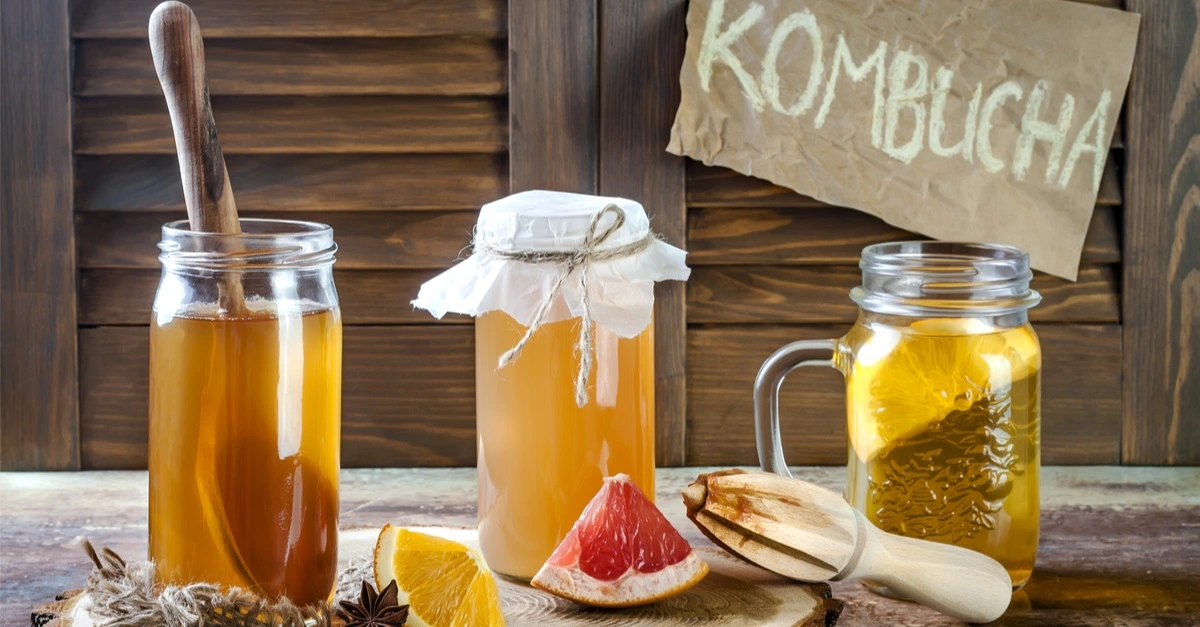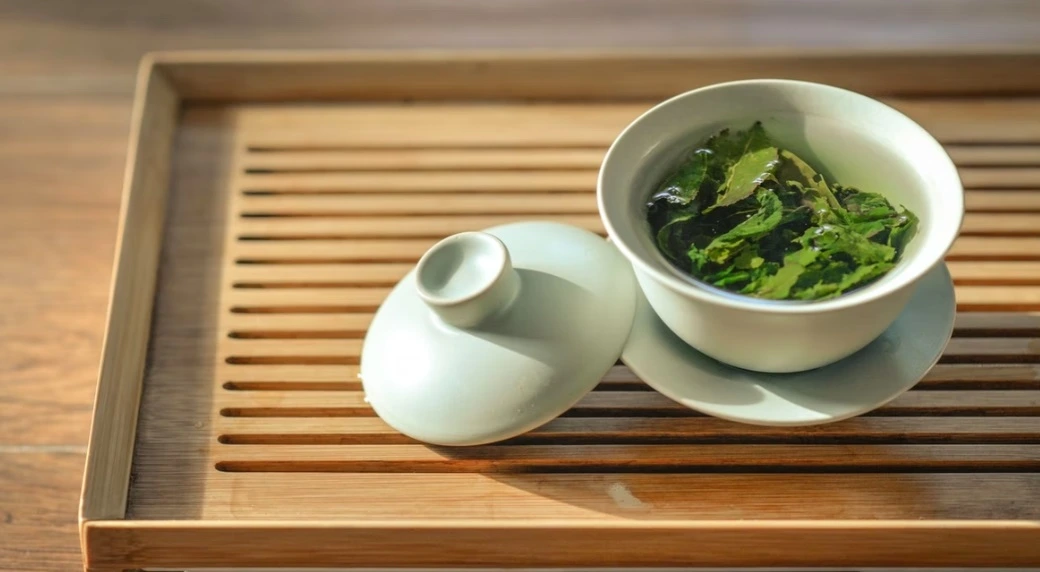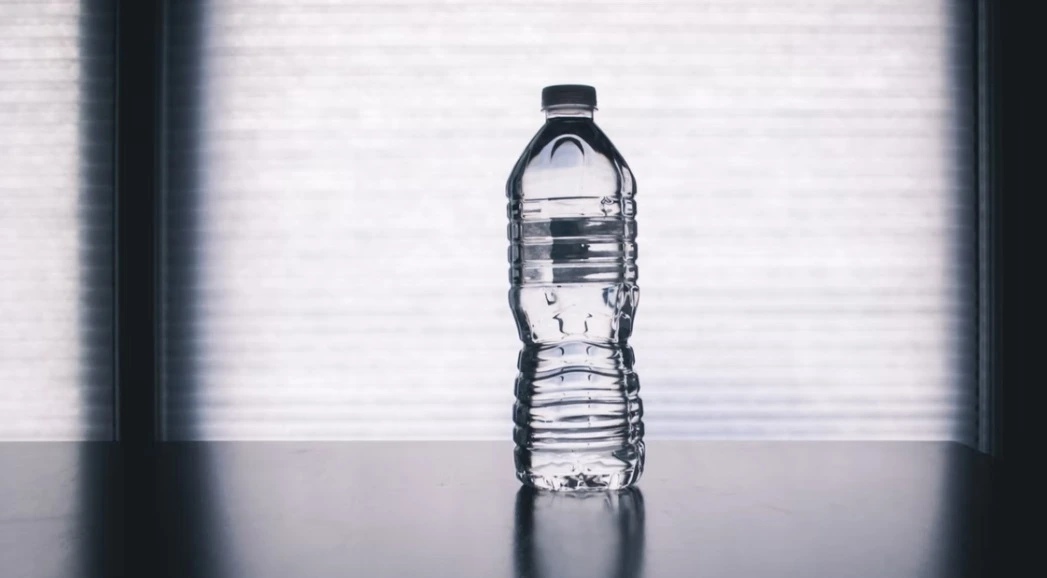Is it Safe to Drink Kombucha While Breastfeeding?

The trace alcohol content plus lack of pasteurization in Kombucha means you should skip it while breastfeeding
Expectant or nursing mothers sometimes find themselves thinking twice about things that may have once been everyday habits: pouring that cup of coffee at 3 pm to try and get through an afternoon slump. Ordering the Greek salad with extra feta cheese. Packing cold cuts for a picnic at the beach. Opening a favorite bottle of red while tackling a new Barefoot Contessa recipe.
Suddenly these decisions we once made on the spur of the moment carry much more weight as we are not only affecting our own health with what we put in our bodies but our baby’s health as well. The things we eat and drink matter both when our babies are in the womb as well as after they are born and are nursing.
While we have long known that cutting back on (or eliminating altogether) a caffeine habit is important for expectant and nursing mothers, and the serious complications related to alcohol and a baby’s health are well documented, you may find yourself wondering about whether more recent trends in the food and beverage world pose a risk for you.
Is a “keto” diet safe to continue during pregnancy and breastfeeding?
Should I replace my coffee with boba tea?
Can I still drink kombucha now that I have a baby on the way?
Just in case you have not paid attention to food and beverage trends in the past decade, we will pause here and explain kombucha.
What Is Kombucha?
While its rise feels somewhat meteoric over the past decade or so in the United States, kombucha has been around for centuries.
This drink first became popular in Asian cultures, and it begins with what is known as a “scoby,” a colony of bacteria and yeast. (While this may not sound terribly appetizing, the end result is a tart flavor many people love). To make kombucha, you would ferment sweetened tea with this scoby (which would appear in a flattened and gelatinous form) and a starter kombucha. Once these ingredients are combined, the yeast will end up eating most of the sugar.

After the fermentation process, you end up with a fizzy and tart drink; this fermented drink is stronger in flavor than, say, a common soft drink, but it is perhaps less potent to most palates than a hard liquor (which also goes through a fermentation process).
Now that you know what kombucha is, you may be asking yourself: why do people drink it? Beyond the fact that many people simply enjoy the taste of kombucha, people drink it for its health benefits, including:
- Gut health. The presence of probiotic function (which adds “good” bacteria to your gut)
- Its antioxidants believed to reduce liver toxins
- The benefits of green tea (when it is used in kombucha) include increased calorie burn, reduced belly fat, and help controlling blood sugar
Fans of kombucha attest to the many ways they believe the drink makes them feel better, whether that is with increased energy, improved bowel habits and gut health, or reduced stress and anxiety.
Can I Drink Kombucha While Breastfeeding?
Because kombucha is considered to have a number of health benefits, a new breastfeeding mother might think this would be a good choice to stay hydrated and also feel energized during those early months when sleep is scarce.
However, there are some other important factors to consider about kombucha.
Caffeine Content
Because green or black tea is included in kombucha, it will have some caffeine content, and some mothers prefer to avoid it during breastfeeding.

Generally, it is considered safe to consume up to 300 milligrams a day, but the reality for many new mothers is that babies do not all react the same way to caffeine. You may notice that with even one cup of coffee, your little one is fussy, and another mother may find that her three cups of tea a day seem to make no difference to her baby’s sleep.
The main takeaway to consider is that there will be some caffeine in kombucha, and you should be especially aware of that if you consume other caffeinated beverages.
Alcohol Content
This is perhaps one of the biggest reasons some nursing mothers kick the kombucha habit while breastfeeding. While it is a non alcoholic beverage, it can still contain trace amounts of alcohol. This alcohol content is only natural given the process that creates kombucha (fermentation).
We should also emphasize that a bottle of kombucha is not the same as consuming a bottle of wine or a few margaritas, for example. But if you are adamant about avoiding alcohol consumption while breastfeeding, you should probably place kombucha and other fermented food on the “no” list and stick to drinks you are confident are a non alcoholic beverage (or stick with plain water, your best bet!)
When it comes to alcohol and breastfeeding, one of the most important things for new mothers to remember is avoiding dehydration. Excessive amounts of alcohol can cause you to become dehydrated, and this will make breastfeeding especially difficult (not to mention what it will do to your already depleted energy levels).

Lack of Pasteurization
If you wondered why you were instructed to give up your favorite soft cheese (such as feta) as a pregnant woman, it’s all about pasteurization.
That is another way to describe a process where foods and liquids are heated to kill harmful bacteria. When foods and beverages do not go through this process, they could contain listeria, which is dangerous enough to make babies seriously ill or even cause infant death.
The fact that kombucha is unpasteurized is one additional reason many breastfeeding mothers avoid it.
Kombucha and a Breastfeeding Diet: Key Takeaways
For a non-pregnant woman and non-nursing woman, kombucha may offer several positive benefits, including a higher calorie burn and reduced stress levels.
However, the risks of breastfeeding or pregnant women drinking kombucha could, frankly, cause stress levels to rise. It may be safest to simply avoid kombucha during pregnancy and breastfeeding and enjoy the tart, fizzy beverage again after those phases have passed.